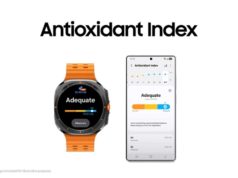
- Register
- Login
20°C
- Article
- . (0)
- Related content
- Company info
Advances in various technologies will drive users to interact with their smartphones in more intuitive ways, said Gartner. Gartner predicts that, by 2019, 20% of all user interactions with the smartphone will take place via virtual personal assistants (VPAs).
"The role of interactions will intensify through the growing popularity of VPAs among smartphone users and conversations made with smart machines," said Annette Zimmermann, research director at Gartner.
Gartner’s annual mobile apps survey conducted in the fourth quarter of 2016 among 3,021 consumers across three countries (US, UK. and China) found that 42% of respondents in the US and 32% in the UK used VPAs on their smartphones in the last three months. More than 37% of respondents (average across US and UK) used a VPA at least one or more times a day.
Apple’s Siri and Google Now are currently the most widely used VPAs on smartphones. 54% of UK and US respondents used Siri in the last three months. Google Now is used by 41% of UK respondents and 48% of US respondents. "VPAs’ usage is bound to accelerate as they add many new features, including integration for business services, further language support and appear across more devices," said Jessica Ekholm, research director at Gartner.
Gartner expects that, by 2019, VPAs will have changed the way users interact with devices and become universally accepted as part of everyday life. Today, VPAs are fulfilling simple tasks such as setting the alarm or retrieving information from the web, but in the near future these systems will be able to deliver more complex tasks such as completing a transaction based on past, present and predicted context.
This trend is also intensified by the acceleration of conversational commerce, but voice is not the only UI for VPA use. In fact, Facebook Messenger is allowing users to interact with businesses to make purchases, chat with customer services and order Uber cars within the app. Moreover, Tencent’s WeChat generates over US$1.1 billion in revenues by offering its 440 million users an all-in-one approach, letting them pay their bills, hail cabs and order products with a text.
China represents the most mature market by far, where the increased dominance of messaging platforms is causing the traditional app market to stall. This trend is continuing to grow, not only among consumers but also among businesses or in the prosumer context. For example, Microsoft’s integration of Cortana into Skype will allow users to chat with their VPA. Cortana will then facilitate the interaction with a third-party bot to get things done, such as a hotel or flight booking.
"We expect AI, machine learning and VPAs to be one of the major strategic battlegrounds from 2017 onwards, and make many mobile apps fade and become subservants of VPAs," said Zimmermann.
With a predicted installed base of about seven billion personal devices, 1.3 billion wearables and 5.7 billion other consumer Internet of Things (IoT) endpoints by 2020, the majority of devices will be designed to function with minimal or zero touch.
By 2020, Gartner predicts that zero-touch UIs will be available on two billion devices and IoT endpoints. "Interactions will move away from touchscreens and will increasingly make use of voice, ambient technology, biometrics, movement and gestures," said Ms. Zimmermann. "In this situation, apps using contextual information will become a crucial factor in user acceptance, as a voice-driven system’s usability increases dramatically according to how much it knows about the user’s surrounding environment. This is where device vendors’ assets or partnerships in VPAs, natural language processing (NLP) and deep machine learning experts will matter."
-
JDI gets support from INCJ
Before Going to Press | 4h 6min ago
-
Digitimes Research: China makers play main role in reviving silver nanowire-based touch solutions
Before Going to Press | 4h 9min ago
-
Huawei Technologies chooses Pegatron, Quanta as notebook ODMs in 2017
Before Going to Press | 4h 10min ago
-
FET finishes first 5G testing in Taiwan in cooperation with Ericsson
Before Going to Press | 4h 11min ago
-
Digitimes Research: 1-tier US telecom operators reaching out to media, IoT sectors
Before Going to Press | 4h 12min ago
-
China panel makers ships over 1 million smartphone-use AMOLED displays in 3Q16, says IHS
Before Going to Press | 4h 13min ago
-
International prices for solar-grade wafers struggle to reach US$0.9 in 2017, says Danen Technology chairman
Before Going to Press | 4h 13min ago
-
Unigroup Guoxin to hold over 50% of YRST
Before Going to Press | 4h 14min ago
-
Taiwan market: Kingwaytek Technology launches 4G-based IoV device
Before Going to Press | 4h 15min ago
-
SK Hynix to build new NAND flash fab
Before Going to Press | 4h 16min ago
-
AUO acquires factory site at Tainan Technology Industrial Park
Before Going to Press | 4h 16min ago
-
AUO, Novatek, Chipbond to benefit from Sharp decision to stop supplying panels to Samsung
Before Going to Press | 4h 17min ago



- Wireless broadband developments in Southeast Asia markets
As of 2013, the 10 ASEAN nations had a total of over 700 million mobile subscriptions, with the CAGR from 2003-2013 reaching 24%. This Digitimes Research Special Report analyzes the various mobile broadband markets in ASEAN and looks at the respective trends in 4G LTE development for those markets.
- 2015 global tablet demand forecast
This Digitimes Research Special Report provides a 2015 forecast for the global tablet market and analyzes the strategies of key market players such as Google, Apple, Intel, and Microsoft.








